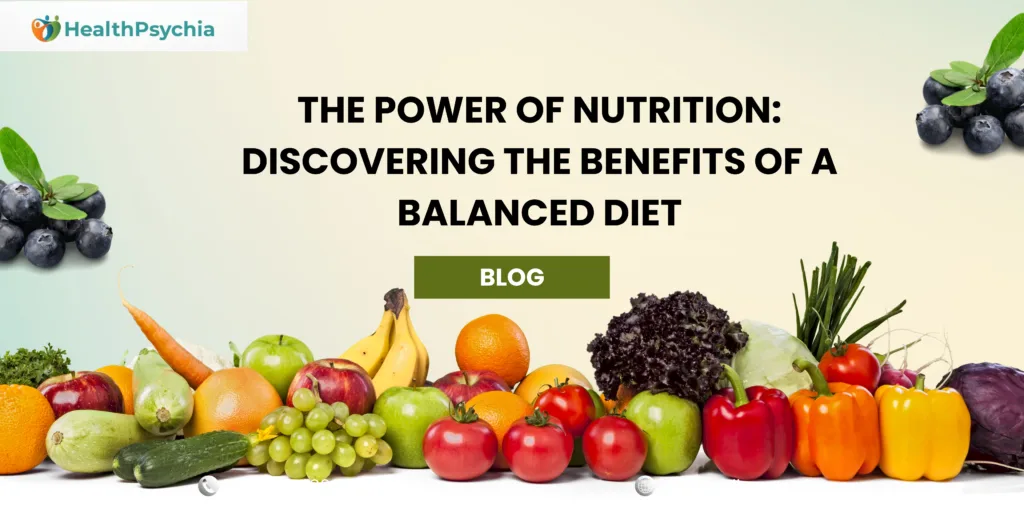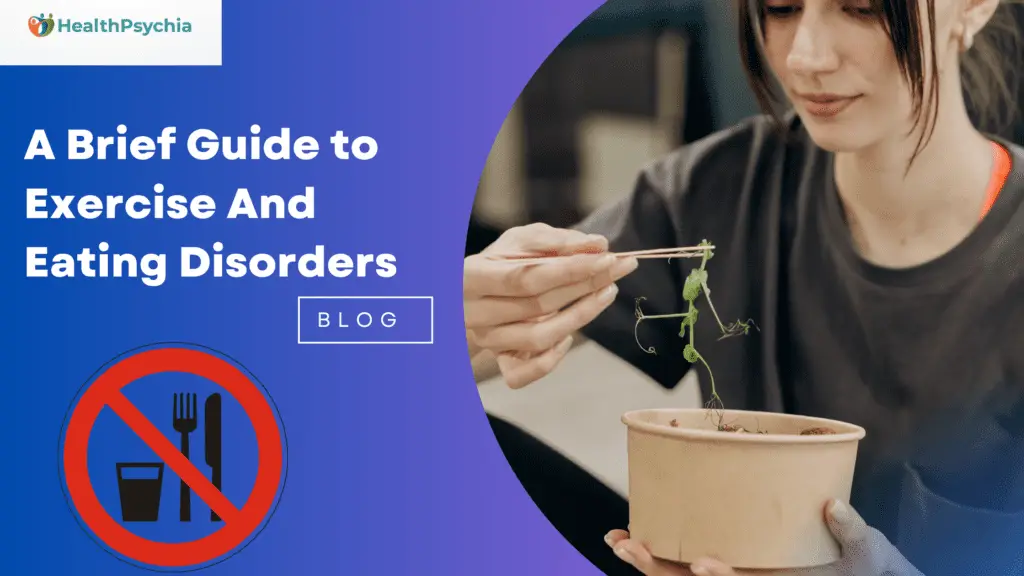The Power of Nutrition: Discovering the Benefits of a Balanced Diet
Have you ever thought about what impact our diet has on our health and well-being? The fact is that nutrition has a significant effect on how our lives are shaped.
Eating a variety of healthful meals as part of a balanced diet offers several advantages that go beyond simply satisfying our stomachs.
It gives us the essential vitamins and minerals our bodies require to function correctly and keeps us active, clear-headed, and healthy.
The fantastic advantages of a balanced diet, from giving us more energy to preventing diseases, will be discussed in this article.
So let’s get started and learn about the incredible power of nutrition and all the ways it can enhance our lives.
The Top Benefits Of A Balanced Diet
Keeping Body Weight Stable
When you consume a nutritious, well-balanced diet, you have less space for the high-calorie meals that typically result in weight gain.
Processed foods and unhealthy snacks, such as those high in fat or refined sugar, would fall under this category. Therefore, the body usually stores these nutrients instead of using them as fuel.
For more details Read: ADDRESSING TRAUMA-OBESITY TOWARDS WEIGHT LOSS
Improve The Health Of Our Hearts
By controlling blood pressure and cholesterol levels, a heart-healthy diet full of fruits, vegetables, whole grains, and low-fat dairy can help minimize your chance of developing heart disease.
A diet high in salt and saturated fats can cause high blood pressure and cholesterol.
Consuming oily fish, such as salmon and trout, once a week can also help to reduce your risk of heart disease. Oily fish has a lot of omega-3 fatty acids, which are excellent for the heart.
Enhanced Brain Power
What possibly could be more important than our brains? Based on our eating habits, we have the chance to keep healthy and operate at a high level.
The ability to study and increase memory are only two of the many advantages that omega-3 fatty acids offer. These essential fatty acids can be found in salmon, walnuts, avocados, and kiwis.
Long-term advantages from omega-3 fatty acids can boost synaptic plasticity, which is how our memory and learning are formed and possibly enhanced. To ensure a clear and highly functional brain, ensure they become an essential part of your diet.
Boost Your Energy Level
The main reason you eat is to get energy from the meal. The “empty calories” in soda, processed snacks, and other junk food may make you feel full, but they don’t provide good energy.
You require complex carbohydrates, good fats, and protein for that. Additionally, increase your iron intake by eating more seafood, chicken, dark leafy greens, and peas if you have unusual fatigue.
Additionally, vitamin C, present in foods like broccoli, peppers, oranges, and tomatoes, helps your body absorb iron more effectively.

Healthy Teeth And Bones
Strong bones and teeth require a sufficient intake of calcium and magnesium from the diet. The risk of developing bone problems later in life, such as osteoporosis, can be reduced by maintaining healthy bones.
The following foods contain a lot of calcium Reliable Sources
- Dairy products
- Kale
- Broccoli
- Fish in cans with bones
Calcium is frequently added by food makers to cereals, tofu, and plant-based milk.
Magnesium is present in large amounts in a variety of foods, and some of the finest sources are as follows:
- Green leafy vegetables
- Nuts
- Seeds
- Whole grains
- Gradual aging
Although aging cannot be stopped, a healthy diet can help you delay it.
The immune system is strengthened, oxidative stress is combated, and inflammation is decreased by the antioxidants found in berries, cruciferous vegetables, and nuts.
In addition, your skin will look younger, smoother, and free of creases and wrinkles.
The risk of age-related illnesses like cancer, heart disease, dementia, and Alzheimer’s is also decreased by a good diet.
Eating well will help you live longer because a poor diet has been connected to 18% of all fatalities in the United States.
It’s difficult to deny the advantages of maintaining a balanced diet. So bear this in mind the next time you grab a bag of chips or a box of cookies: your body deserves better. For a healthier, longer life, choose foods that are high in nutrients.
Enhanced Sleep Quality
A healthy diet also enhances the quality of sleep. The normal biological cycle can be interrupted by late-night snacking on junk food or ice cream, eating dinner at an odd hour, and ingesting fatty and filling foods.
Obesity and metabolic syndrome are more likely as a result. You feel unstable and suffer from poor digestion and concentration as a result.
Healthy eating and leaving at least three hours between meals and bedtime help with digestion, reduce stress, and promote restful sleep.
For more details Read: ULTIMATE GUIDE OF SLEEP MEDITATION FOR INSOMNIA
Reduce The Chance Of Chronic Disease
Treatment of chronic diseases linked to food, such as type 2 diabetes, results in a sizable amount of medical expenses.
Even those who have a family history of developing type 2 diabetes are unlikely to develop it if they follow a healthy diet.
Controlling your sugar intake is crucial if diabetes runs in your family so that you don’t put yourself in further danger.
Keep Your Pregnancy Healthy
Pregnant women need proper nutrition even more because a balanced diet supplies both mother and child with the necessary vitamins and minerals.
The risk of problems, such as gestational diabetes, pre-eclampsia, and low birth weight, is also decreased by eating the right foods.
Decreases Stress
Fruits and vegetables are rich in antioxidants. Inflammation is decreased by antioxidants through lowering oxidative stress in the body.
Healthy foods have the exact opposite effect. They are nutritionally worthless, and the trans fats and high sugar levels cause the body to become more inflamed, which increases oxidative stress.
Stay away from fatty, unhealthy, and filling foods. The best long-term remedy for physical and emotional stress is eating light, healthful foods.
What Is Included In A Balanced, Healthy Diet?
A wonderful place to start is to make it a daily habit to eat five servings of fruits and vegetables. Include the following five major food groups in your diet for ideal health.

1. Veggies And Fruits
They are rich in fiber, antioxidants, vitamins, minerals, and other nutrients that are essential for preserving the body’s health.
The majority of your daily fruit and vegetable intake, or slightly more than one-third of your total calories, should consist of about five servings of different seasonal fruits and vegetables.
2. Dairy Products
Dairy is the most popular source of calcium and protein. For a well-balanced diet, use dairy products that are low in fat or free of fat.
Additionally, drink fat-free yogurts with flavoring in moderation because they frequently have added sugar.
3. Consumption Of Protein
Protein, the source of all eight essential amino acids, must make up one-eighth of a balanced diet.
Protein-rich diets not only promote muscular building but also raise hemoglobin levels. As a result, be sure that you include a range of protein sources.
4. Starchy Foods
Carbohydrates, which comprise around one-third of your diet, are the body’s primary source of energy.
To maintain a balanced diet, it is essential to understand the various types of starchy carbohydrates and choose healthier substitutes. For instance, choose healthy grains instead of processed carbohydrates.
Conclusion
Simply said, what we eat is important. The secret to a healthy and happy life is a balanced diet. By making rich nutrient dietary choices, we provide our bodies with the energy they require to perform at their peak.
Many benefits include increased energy, a better mind, and slow aging. It’s incredible how something as basic as eating healthy can have such a significant effect on our well-being.
So, let’s embrace nutrition’s power and choose wisely what to put on our plates. We can live a life full of vigor, power, and general wellness by doing this.


